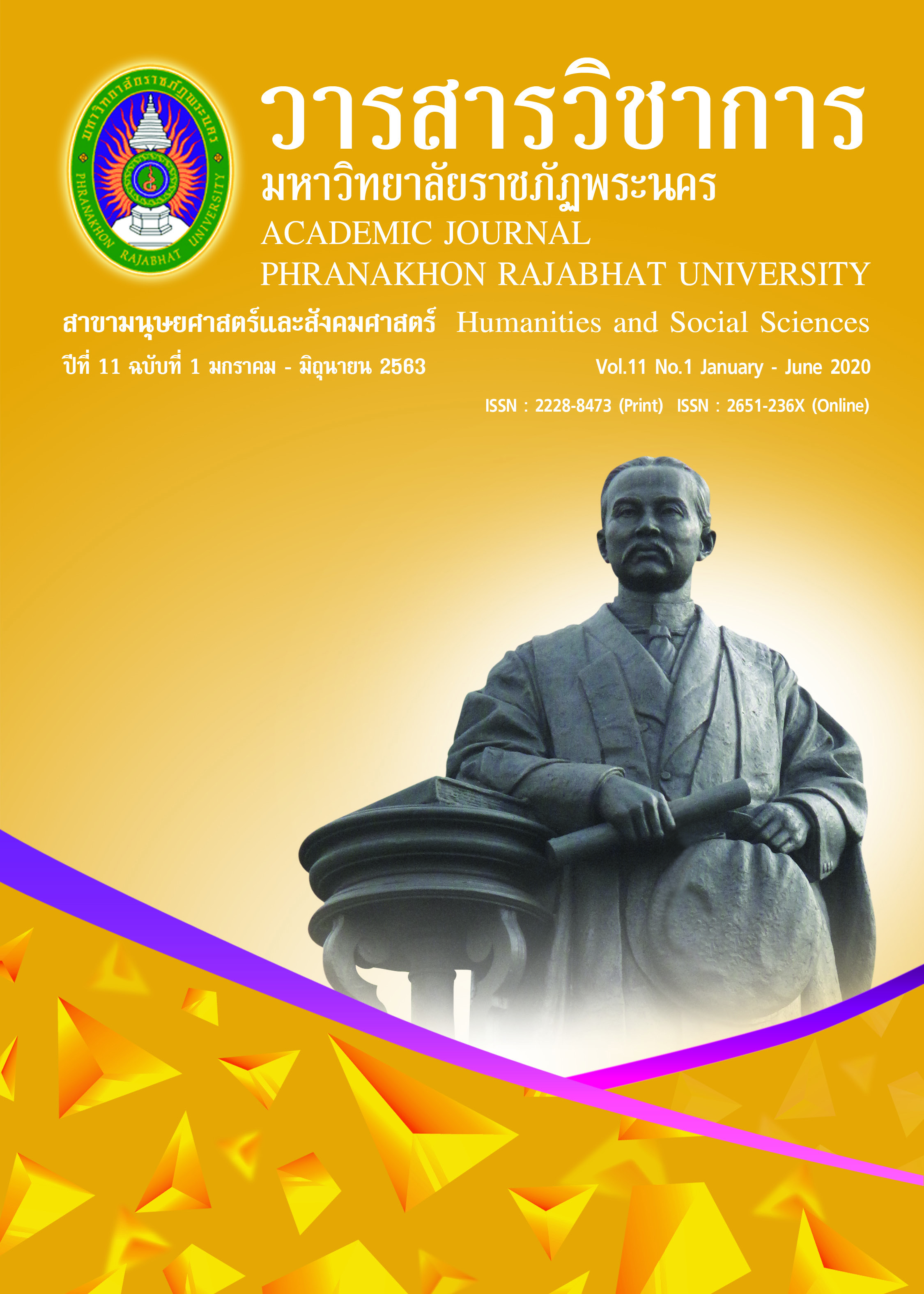MODEL FOR DEVELOPING COMPETENCY OF COMMUNITY ENTERPRISE ENTREPRENEURS IN PRACHUAP KHIRI KHAN PROVINCE
Keywords:
Competency, Development, Entrepreneur, Community enterpriseAbstract
The purposes of this research were: 1) to study the competency of community enterprise entrepreneurs, 2) to investigate the success of community enterprise entrepreneurs, 3) to examine the relationship between the competency and success of community enterprise entrepreneurs, and 4) to propose the model for developing competency of community enterprise entrepreneurs in Prachuap Khiri Khan Province. The mixed methodology was applied in this study. The questionnaire was used for collecting quantitative data from 135 community enterprise entrepreneurs in Prachuap Khiri Khan Province. The quantitative data were analyzed by computing percentage, mean, standard deviation, and Pearson’s Correlation Coefficient. The in-depth interview was used for collecting qualitative data from 14 informants, personnel involving in proceeding community enterprises and One Tambon, One Product (OTOP). The research results were as follows: 1) the competency of community enterprise entrepreneurs was overall at a high level. The aspect with the highest mean was motive. The other aspects with the lower means were, ranked in descending order of their means, trait, knowledge, self-concept, and skill, 2) the success of community enterprise entrepreneurs was overall at a moderate level. The aspect with the highest mean was competitive aggressiveness. The other aspects with the lower means were, ranked in descending order of their means, self-confidence, proactiveness, creativeness, and risk taking, 3) there was a positive relationship, with correlation coefficient with statistical significance at the 0.01 level between the competency and success of community enterprise entrepreneurs, and 4) the model for developing competency of community enterprise entrepreneurs, to drive the development of community enterprise entrepreneurs’ competency to be able to become self-reliant, was A-SAP model consisting of 3 aspects as follows: S (Survey of entrepreneurs’ needs), A (Action Plan or preparing entrepreneur development plan according to their needs), and P (Practice or implementation of entrepreneur development plan).
References
Aongsakoon, W. and Kanitpong, T. (2007). Small business management. Bangkok: I Group Press. (in Thai).
Chokpromanan, W. and Jadesadalug, V. (2015). The Affects Entrepreneur Characteristic On the Successful Operation of Store Entrepreneur in Don Wai Floating Market, NakhonPathom Province. Veridian E-Journal, Slipakorn University, 8(2): 967-988. (in Thai).
Choonkaklai, S. (2006). Organizational Performance Management. Damrong Rajanuphab Journal, 6(20) : 20-50. (in Thai).
Frese, M. (2000). Success and failure of micro business owners in Africa: A psychological approach. Westport, CT: Greenwood.
Hatten, T. S. (2006). Small business management: Entrepreneurship and beyond. 3rd ed. Boston, MA: Houghton Mifflin.
Hewchaiyaphum, M. (2016). The effect of enterpreneurial characteristics on business success : case of the construction and materials enterpreneurs Nakhonratchasima province. Master of Business Administration, Rajamangla University of Technology Isan. (in Thai).
Leelachayakul, A. (2012). Desirable competency under assignment workloads of academic staff/lecturers at Chulalongkorn University. Thesis Master of Public Administration Program in Public Administration Department of Public Administration, Chulalongkorn University. (in Thai).
Lumpkin G. T., and Gregory, D. G. (2008). Strategic management: Creating competitive advantages. Boston, MA: McGraw-Hill/Irwin.
Mc Clelland, D. C. (1987). Characteristics of successful entrepreneurs. Journal Creation Behavior, 21(1): 18-21.
Office of the National Economic and Social Development Council. (2017). National Economic and Social Development Plan No. 12 (2017-2021). Bangkok: Office. (in Thai).
Pawchit, C. (2011). Competency and quality of economics graduates desired by employers. Bangkok: Dhurakij Pundit University. (in Thai).
Payakkapipatkul, R. and Others. (2012). The Potential of Community Enterprise Operations Adhering to Loan Requirement of the Bank for Agriculture and Agricultural Cooperatives at Khunhan Branch of Sisaket Province. The 2nd STOU Graduate Research Conference, 4-5 September 2012. (in Thai).
Pongpit, S. (2009). Guide to making community enterprises. Bangkok: Palangpanya. (in Thai).
Prutikul, D. (2010). Knowledge and Comprehension Concerning Community Enterprise Extension of Community Enterprise Leader in Ratchaburi Province. Master of Arts, Political Science, Kasetsart University. (in Thai).
Srisamanuwat, S. (2010). Competency development of personnel in the organization based on competency Competency-based HRD. Master of Science Program in Information Technology, Mahanakorn University. (in Thai).
Suriyamanee, S. and Ammuang, T. (2016). Preliminary Competency Model for Executive Secretary Unit: A Study of Mahidol University’s Executive Secretary Unit. Mahidol R2R e-Journal, 3(2) : 23-41. (in Thai).
Thailand e-Government. (2017). Agricultural Extension Project Manual for the fiscal year 2017 Project to drive the implementation of community enterprise promotion. Bangkok: Public Relations and Publications, Creativity of Content.
Thongpan, P. (2015). Key Success Factors of Community Enterprise in Local Government Organization, Prachuap Khiri Khan Province. Master of Public Administration Thesis in Urban and Rural Community Development and Administration, Phetchaburi Rajabhat University. (in Thai).
Downloads
Published
How to Cite
Issue
Section
License
"บทความวิชาการในวารสารฉบับนี้ ถือเป็นความรับผิดชอบของผู้เขียนเท่านั้น"
สงวนลิขสิทธิ์ตามพระราชบัญญัติลิขสิทธิ์




